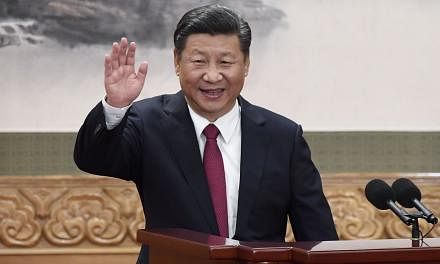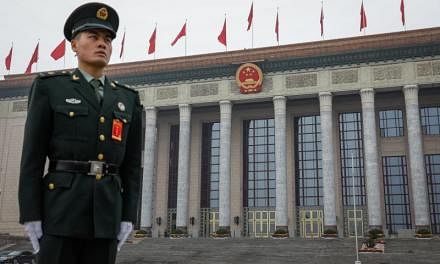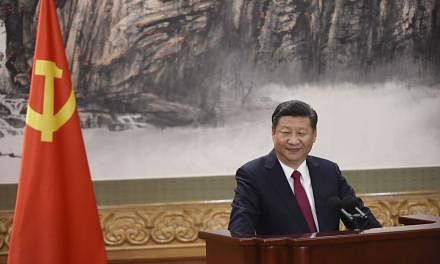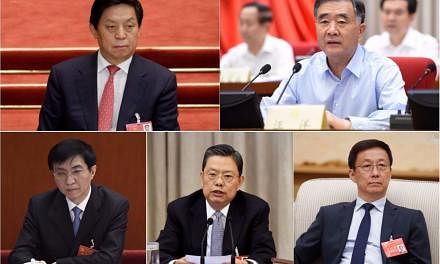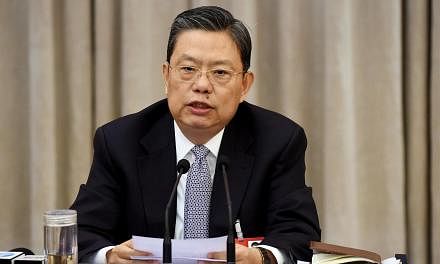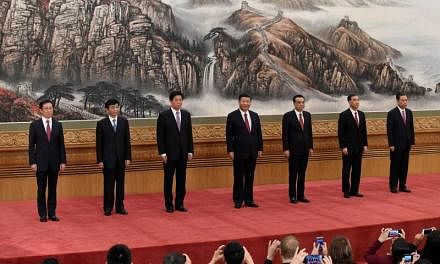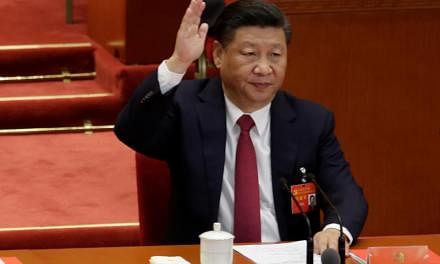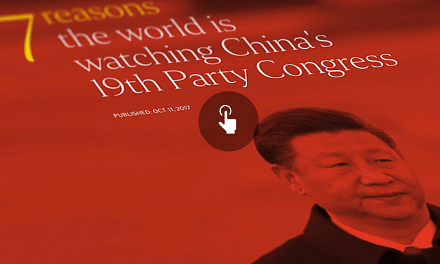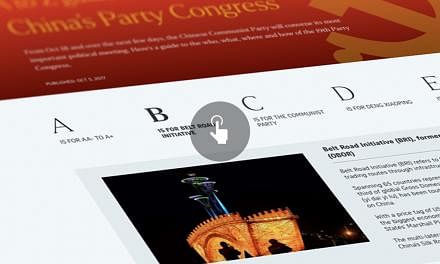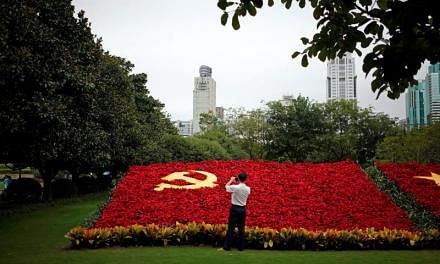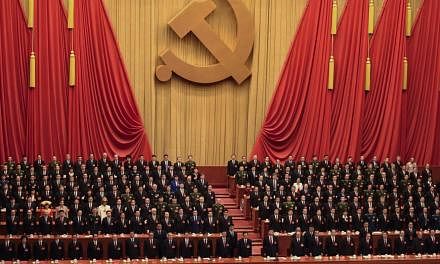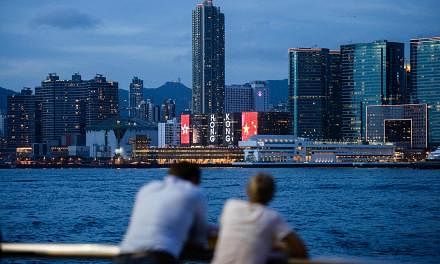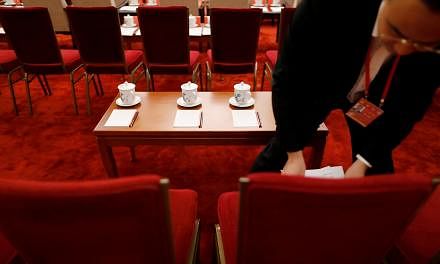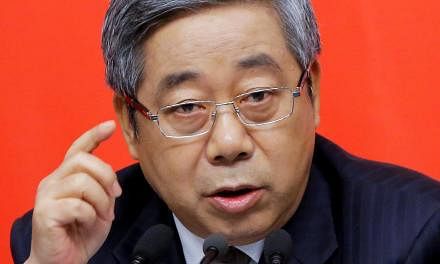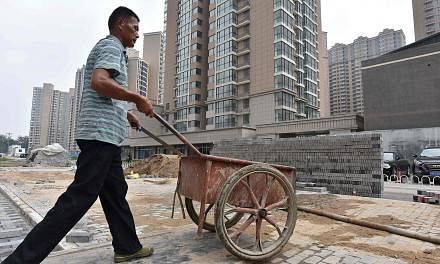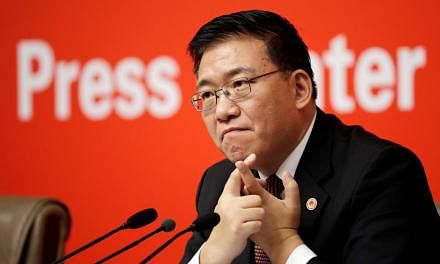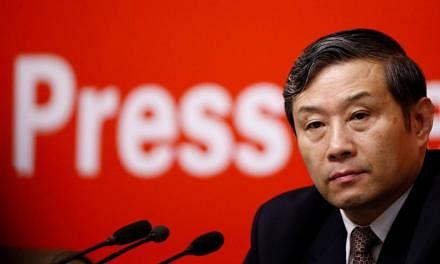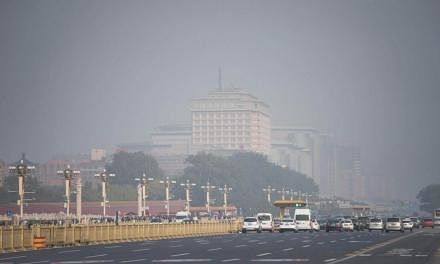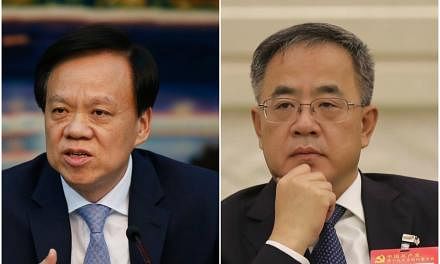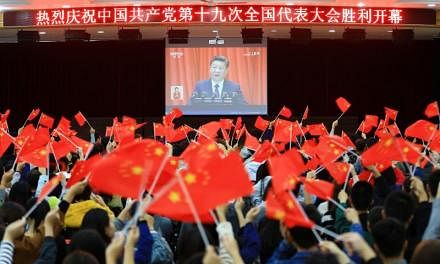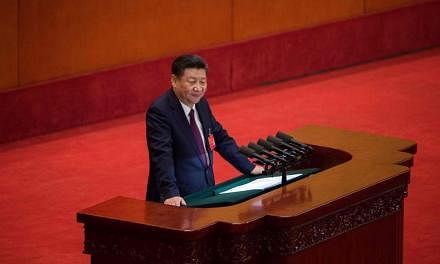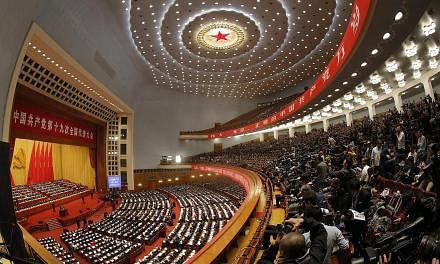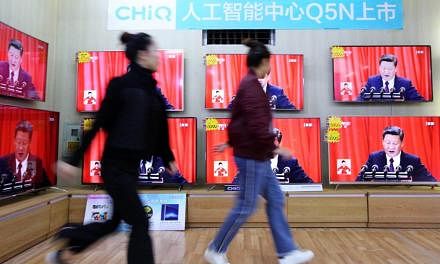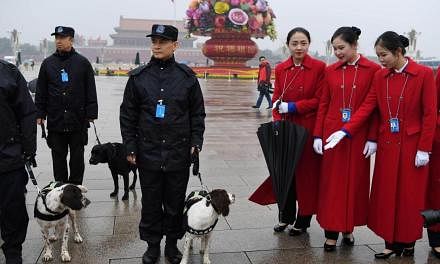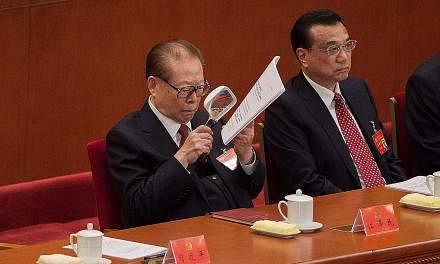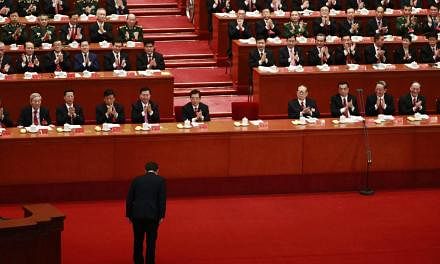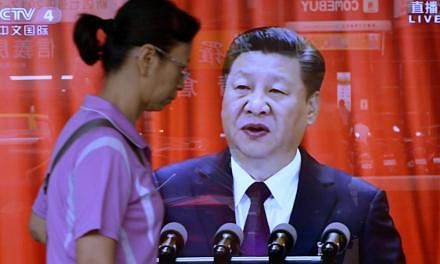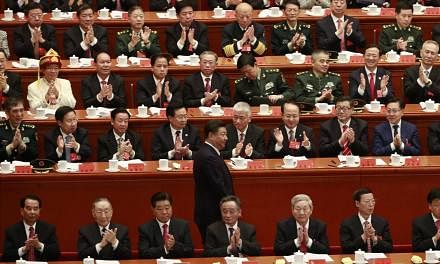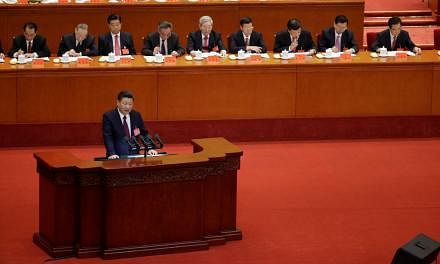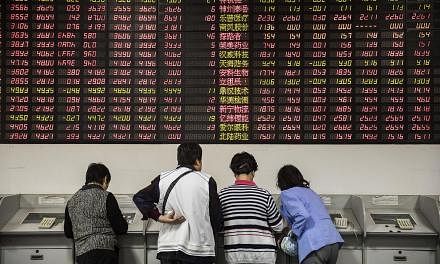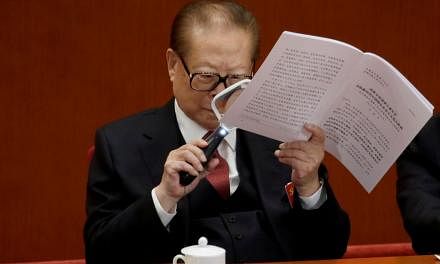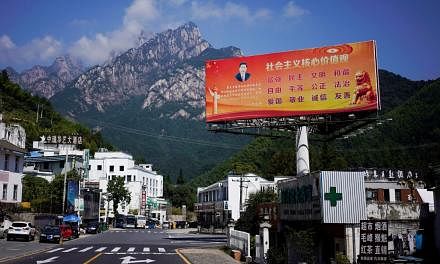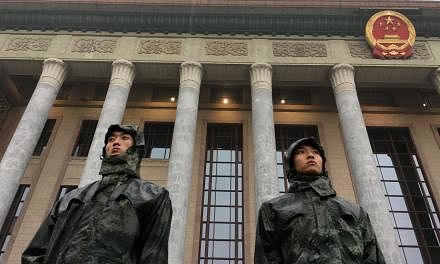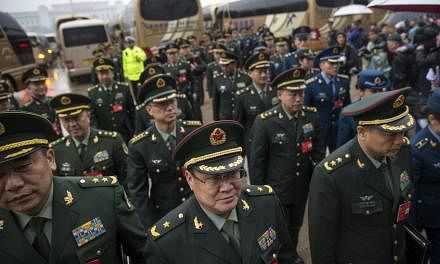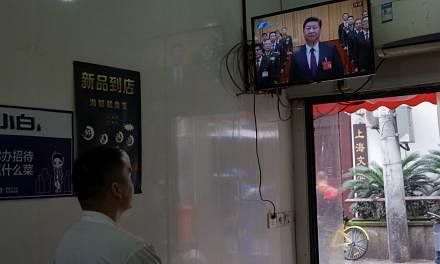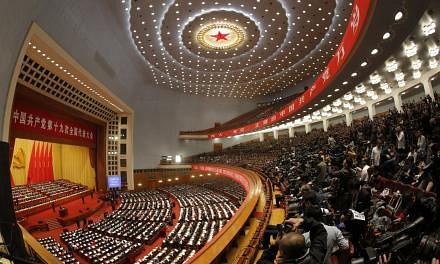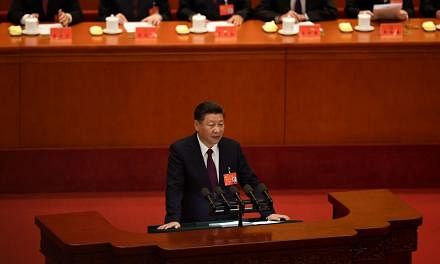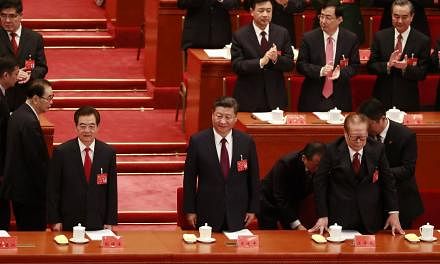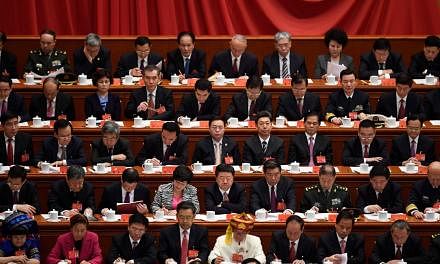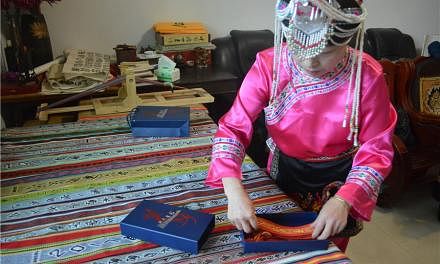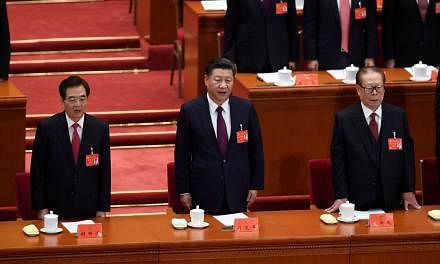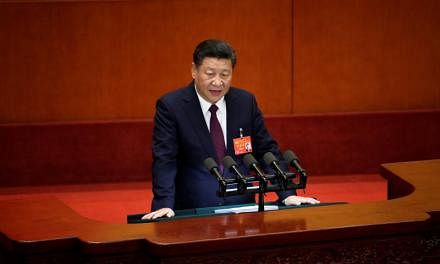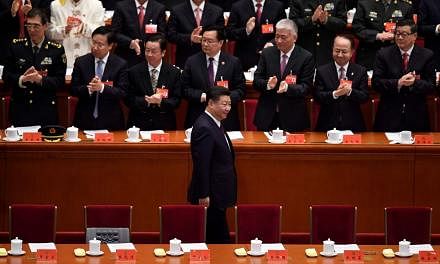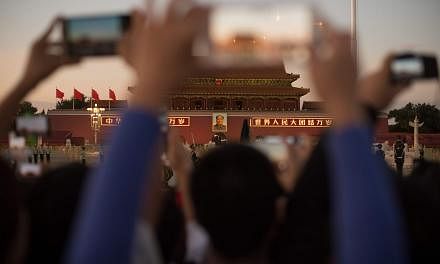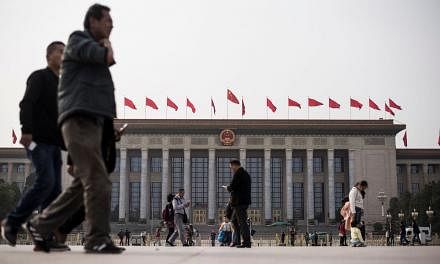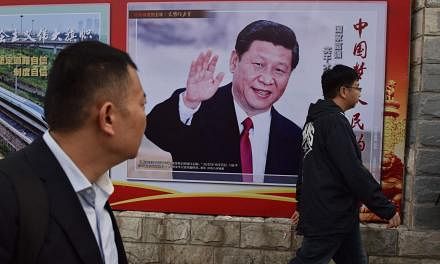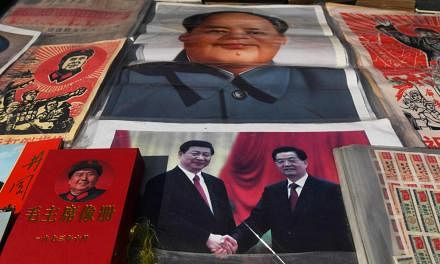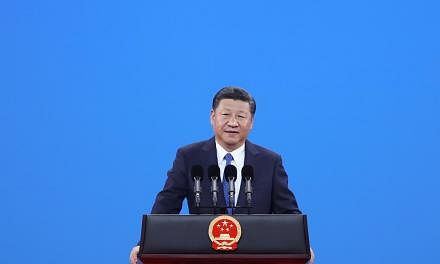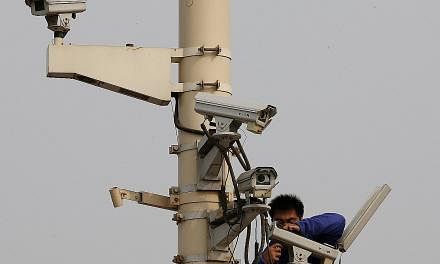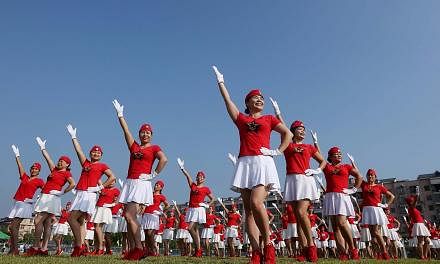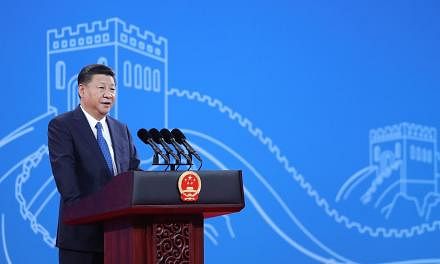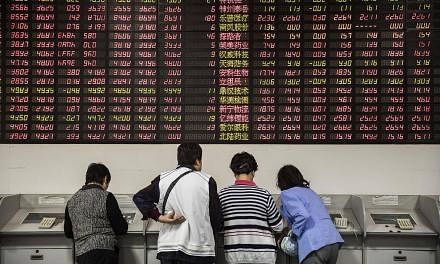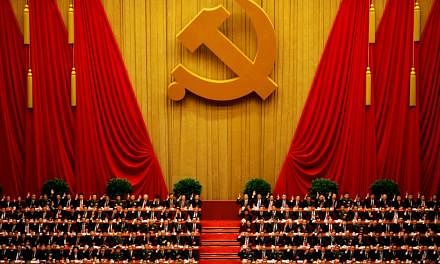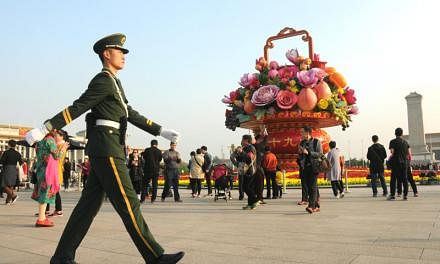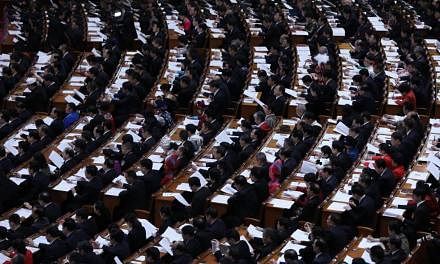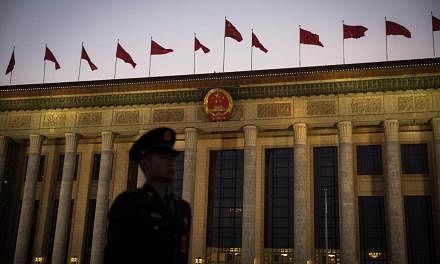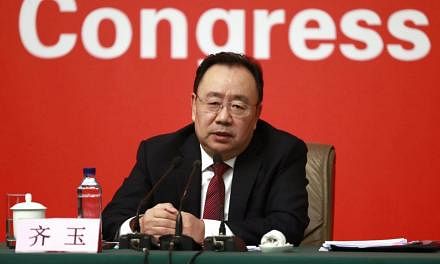BEIJING - The seven men in the Chinese Communist Party's (CCP) Politburo Standing Committee (PSC) - China's top leadership team - were unveiled on Wednesday (Oct 25) morning, bringing to a close the country's most important political meeting.
The 19th CCP National Congress, which began last Wednesday (Oct 18), saw several key milestones that further strengthened President Xi Jinping's grip on power.
Here's what you need to know about the congress outcome.
1. Five new faces in PSC
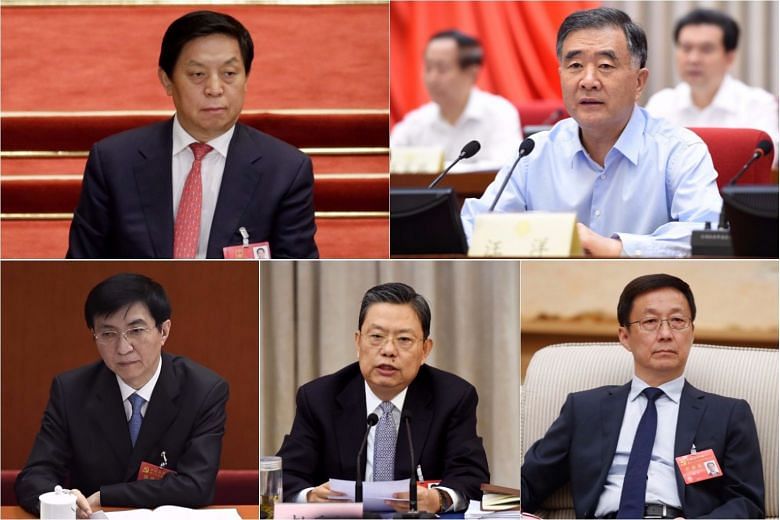
Apart from Mr Xi and Premier Li Keqiang, the PSC sees five new members: Li Zhanshu, Wang Yang, Wang Huning, Zhao Leji and Han Zheng.
2. Any hints of possible successors?
Notably, the new line-up did not include any potential successor to Mr Xi, adding fuel to the speculation that he could be seeking a third term in office - which will be a break from the norm of two five-year terms.
Guangdong party secretary Hu Chunhua and Chongqing party boss Chen Min'er had previously be seen as prominent contenders to succeed Mr Xi among the party's so-called sixth generation of leaders, but were not included in the PSC.
Instead, both were named to the wider 25-member Politburo, a rung below the Standing Committee.
3. Xi Jinping Thought on Socialism with Chinese Characteristics for a New Era

Mr Xi's political slogan has been enshrined in the Chinese Communist Party's Constitution, which elevates him to a status comparable to Mao Zedong and Deng Xiaoping.
It cements his position as without peer in the party leadership, and his stature as China's strongest leader in decades.
4. A China that stands tall in the world

In his 3½-hour opening speech at the congress, Mr Xi presented his new 2050 vision for China: a modern socialist country that can stand tall in the world.
He outlined the ambitious goal in two phases - China to become a top innovative nation by 2035, and a nation with global influence 15 years later.
This is in line with the country's ongoing strategy of active foreign diplomacy, a choice that has seen its international influence grow in recent years.
5. How much punch will the anti-graft campaign pack?

There was much guessing as to whether Mr Wang Qishan, a close confidant for Mr Xi, would stay on as China's anti-corruption czar, despite hitting the unwritten retirement age.
It was announced at the closing of the congress that the task has been given to the party's Organisation chief Zhao Leji . And Mr Zhao, another of Xi's confidant, will have to see through the anti-graft drive in a series of "intensified efforts to address corruption that occurs on the people's doorsteps", in line with Xi's key speech at the close of the congress.
6. A signal of economic policy continuity?

Mr Liu He, one of Mr Xi's closest financial and economic advisers, was re-named to the party's Central Committee, a signal China's new leaders are not looking to make significant changes to economic policy.
A long-time member of Mr Xi's inner circle, Mr Liu has played a key role in government as director of the Communist Party's general office of the Central Leading Group for Financial and Economic Affairs. He is also deputy director of the powerful National Development and Reform Commission.
7. A-Z interactive guide to the congress

Feeling overwhelmed by everything that transpired during the week-long event at the Great Hall of The People?
Revisit our easy-to-digest guide to the who, what, where and how of the congress.

